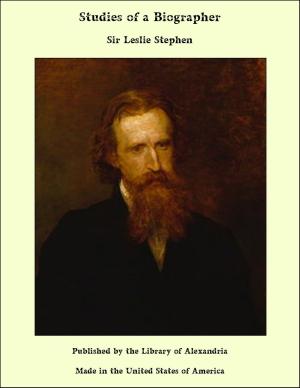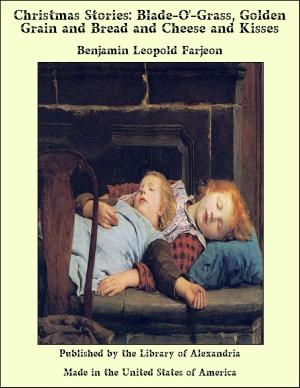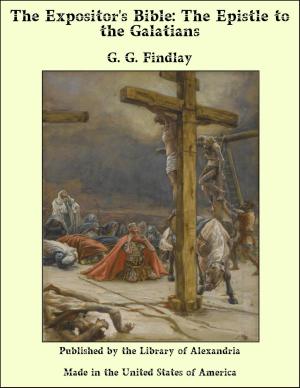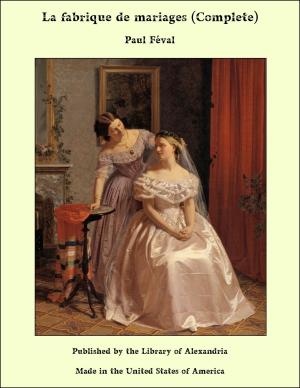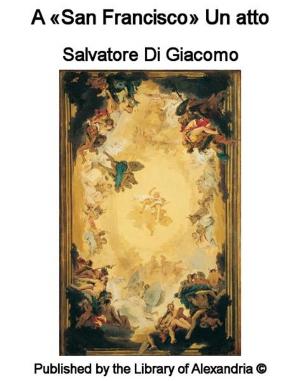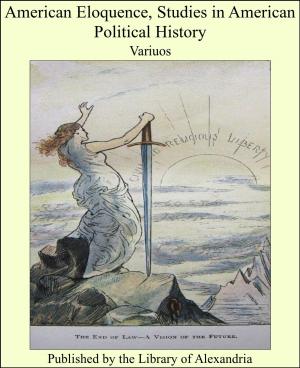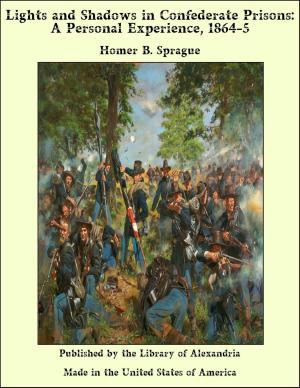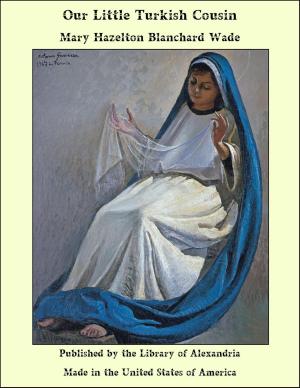Cab and Caboose: The Story of a Railroad Boy
Nonfiction, Religion & Spirituality, New Age, History, Fiction & Literature| Author: | Kirk Munroe | ISBN: | 9781465624673 |
| Publisher: | Library of Alexandria | Publication: | March 8, 2015 |
| Imprint: | Language: | English |
| Author: | Kirk Munroe |
| ISBN: | 9781465624673 |
| Publisher: | Library of Alexandria |
| Publication: | March 8, 2015 |
| Imprint: | |
| Language: | English |
“Go it, Rod! You’ve got to go! One more spurt and you’ll have him! There you are over the line! On time! On railroad time! Three cheers for Railroad Blake, fellows! ’Rah, ’rah, ’rah, and a tigah! Good for you, Rod Blake! the cup is yours. It was the prettiest race ever seen on the Euston track, and ‘Cider’ got so badly left that he cut off and went to the dressing-room without finishing. Billy Bliss was a good second, though, and you only beat him by a length.” Amid a thousand such cries as these, from the throats of the excited boys and a furious waving of hats, handkerchiefs, and ribbon-decked parasols from the grand stand, the greatest bicycling event of the year so far as Euston was concerned, was finished, and Rodman Blake was declared winner of the Railroad Cup. It was the handsomest thing of the kind ever seen in that part of the country, and had been presented to the Steel Wheel Club of Euston by President Vanderveer of the great New York and Western Railroad, who made his summer home at that place. The race for this trophy was the principal event at the annual meet of the club, which always took place on the first Wednesday of September. If any member won it three years in succession it was to be his to keep, and every winner was entitled to have his name engraved on it. Snyder Appleby or “Cider Apples” as the boys, with their love for nicknames, sometimes called him, had won it two years in succession, and was confident of doing the same thing this year. He had just obtained, through President Vanderveer, a position in the office of the Railroad Company, and only waited to ride this last race for the “Railroad Cup,” as it was called in honor of its donor, before going to the city and entering upon his new duties. Now to be beaten so badly, and by that young upstart, for so he called Rod Blake, was a mortification almost too great to be borne. As Snyder left the track without finishing the last race and made his way to the dressing-room under the grand stand, he ground his teeth, and vowed to get even with his victorious rival yet. The cheers and yells of delight with which the fellows were hailing the victor, made him feel his defeat all the more bitterly, and seek the more eagerly for some plan for that victor’s humiliation. Snyder Appleby was generally considered by the boys as one of the meanest fellows in Euston, and that is the reason why they called him “Cider Apples”; for those, as everybody knows, are most always the very poorest of the picking. So the name seemed to be appropriate, as well as a happy parody on that to which he was really entitled. He was the son, or rather the adopted son, of Major Arms Appleby, who, next to President Vanderveer, was the richest man in Euston, and lived in the great, rambling stone mansion that had been in his family for generations. The Major, who was a bachelor, was also one of the kindest-hearted, most generous, and most obstinate of men. He loved to do good deeds; but he loved to do them in his own way, and his way was certain to be the one that was contrary to the advice of everybody else. Thus it happened that he determined to adopt the year-old baby boy who was left on his doorstep one stormy night, a little more than sixteen years before this story opens. He was not fond of babies, nor did he care to have children about him. Simply because everybody advised him to send this one to the county house, where it might be cared for by the proper authorities, he declared he would do nothing of the kind; but would adopt the little waif and bring him up as his own son. As the boy grew, and developed many undesirable traits of character, Major Appleby was too kind-hearted to see them, and too obstinate to be warned against them. “Don’t tell me,” he would say, “I know more about the boy than anybody else, and am fully capable of forming my opinion concerning him.”
“Go it, Rod! You’ve got to go! One more spurt and you’ll have him! There you are over the line! On time! On railroad time! Three cheers for Railroad Blake, fellows! ’Rah, ’rah, ’rah, and a tigah! Good for you, Rod Blake! the cup is yours. It was the prettiest race ever seen on the Euston track, and ‘Cider’ got so badly left that he cut off and went to the dressing-room without finishing. Billy Bliss was a good second, though, and you only beat him by a length.” Amid a thousand such cries as these, from the throats of the excited boys and a furious waving of hats, handkerchiefs, and ribbon-decked parasols from the grand stand, the greatest bicycling event of the year so far as Euston was concerned, was finished, and Rodman Blake was declared winner of the Railroad Cup. It was the handsomest thing of the kind ever seen in that part of the country, and had been presented to the Steel Wheel Club of Euston by President Vanderveer of the great New York and Western Railroad, who made his summer home at that place. The race for this trophy was the principal event at the annual meet of the club, which always took place on the first Wednesday of September. If any member won it three years in succession it was to be his to keep, and every winner was entitled to have his name engraved on it. Snyder Appleby or “Cider Apples” as the boys, with their love for nicknames, sometimes called him, had won it two years in succession, and was confident of doing the same thing this year. He had just obtained, through President Vanderveer, a position in the office of the Railroad Company, and only waited to ride this last race for the “Railroad Cup,” as it was called in honor of its donor, before going to the city and entering upon his new duties. Now to be beaten so badly, and by that young upstart, for so he called Rod Blake, was a mortification almost too great to be borne. As Snyder left the track without finishing the last race and made his way to the dressing-room under the grand stand, he ground his teeth, and vowed to get even with his victorious rival yet. The cheers and yells of delight with which the fellows were hailing the victor, made him feel his defeat all the more bitterly, and seek the more eagerly for some plan for that victor’s humiliation. Snyder Appleby was generally considered by the boys as one of the meanest fellows in Euston, and that is the reason why they called him “Cider Apples”; for those, as everybody knows, are most always the very poorest of the picking. So the name seemed to be appropriate, as well as a happy parody on that to which he was really entitled. He was the son, or rather the adopted son, of Major Arms Appleby, who, next to President Vanderveer, was the richest man in Euston, and lived in the great, rambling stone mansion that had been in his family for generations. The Major, who was a bachelor, was also one of the kindest-hearted, most generous, and most obstinate of men. He loved to do good deeds; but he loved to do them in his own way, and his way was certain to be the one that was contrary to the advice of everybody else. Thus it happened that he determined to adopt the year-old baby boy who was left on his doorstep one stormy night, a little more than sixteen years before this story opens. He was not fond of babies, nor did he care to have children about him. Simply because everybody advised him to send this one to the county house, where it might be cared for by the proper authorities, he declared he would do nothing of the kind; but would adopt the little waif and bring him up as his own son. As the boy grew, and developed many undesirable traits of character, Major Appleby was too kind-hearted to see them, and too obstinate to be warned against them. “Don’t tell me,” he would say, “I know more about the boy than anybody else, and am fully capable of forming my opinion concerning him.”


